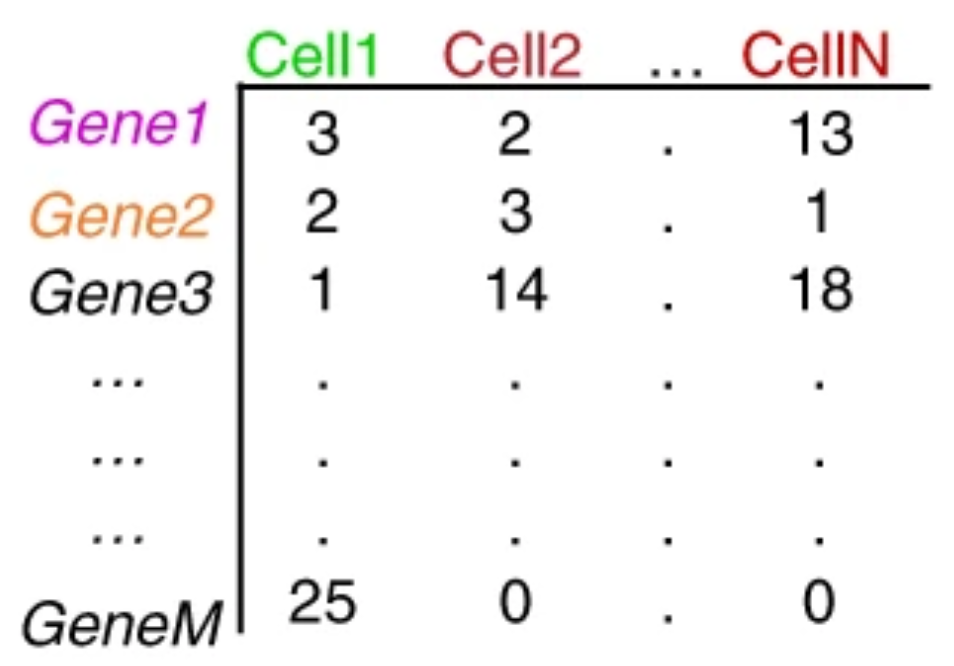1.String类对象的构造(后面有每一个接口的实现)
#define _CRT_SECURE_NO_WARNINGS 1
#pragma once
#include<iostream>
#include<assert.h>
using namespace std;
namespace bit
{
class string
{
public:
typedef char* iterator;
typedef const char* const_iterator;
iterator begin();
iterator end();
const_iterator begin() const;
const_iterator end() const;
//string();
string(const char* str = "");
string(const string& s);
string& operator=(const string& s);
~string();
const char* c_str() const;
size_t size() const;
char& operator[](size_t pos);
const char& operator[](size_t pos) const;
void reserve(size_t n);
void push_back(char ch);
void append(const char* str);
string& operator+=(char ch);
string& operator+=(const char* str);
void insert(size_t pos, char ch);
void insert(size_t pos, const char* str);
void erase(size_t pos = 0, size_t len = npos);
size_t find(char ch, size_t pos = 0);
size_t find(const char* str, size_t pos = 0);
void swap(string& s);
string substr(size_t pos = 0, size_t len = npos);
bool operator<(const string& s) const;
bool operator>(const string& s) const;
bool operator<=(const string& s) const;
bool operator>=(const string& s) const;
bool operator==(const string& s) const;
bool operator!=(const string& s) const;
void clear();
private:
// char _buff[16];
char* _str;
size_t _size;
size_t _capacity;
//
//const static size_t npos = -1;
// ֧
//const static double N = 2.2;
const static size_t npos;
};
istream& operator>> (istream& is, string& str);
ostream& operator<< (ostream& os, const string& str);
}2.String类常见的构造方式



void test_string1()
{
// 常用
string s1;
string s2("hello world");
string s3(s2);
// 不常用 了解
string s4(s2, 3, 5);
string s5(s2, 3);
string s6(s2, 3, 30);
string s7("hello world", 5);
string s8(10, 'x');
cout << s1 << endl;
cout << s2 << endl;
cout << s3 << endl;
cout << s4 << endl;
cout << s5 << endl;
cout << s6 << endl;
cout << s7 << endl;
cout << s8 << endl;
cin >> s1;
cout << s1 << endl;
}3.String的隐式类型转换与构造

void test_string2()
{
string s1("hello world"); //构造
string s2 = "hello world"; //隐式类型转换
const string& s3 = "hello world";// 临时对象具有常性,加const
}4.String类的基本操作函数
void test_string3()
{
string s1("hello world");
cout << s1.size() << endl;
//capacity 比 实际空间少一个,有一个多的是预留给\0
cout << s1.capacity() << endl;
cout << s1.max_size() << endl;
}5.String的三种遍历方式
5.1 :使用[]来完成遍历
string s1 = "hello world";
for (int i = 0; s1[i]; i++)
{
cout << s1[i] << " ";
}
cout << endl;5.2 : 使用迭代器完成遍历
string::iterator it1 = s1.begin();
while (it1 != s1.end()) {
cout << *it1 << " ";
++it1;
}
cout << endl;
cout << typeid(it1).name() << endl5.3 :使用auto 来完成遍历
//遍历方式3:范围for
// 底层:就是迭代器
for (auto e : s1) {
cout << e << " ";
}
6.String的逆置 - reverse
void test_string5() //反向迭代器
{
string s1("hello world");
string::const_iterator it1 = s1.begin();
//auto it1 = s1.begin();
while (it1 != s1.end())
{
//*it1 += 3;// 不能修改
cout << *it1 << " ";
++it1;
}
string s2("hello world");
string::reverse_iterator it2 = s2.rbegin();
while (it2 != s2.rend()) {
*it2 += 3;
cout << *it2 << " ";
++it2;
}
}7.String的sort 排序
void test_string6()
{
string s1("hello world");
cout << s1 <<endl;
//按字典序排序
sort(s1.begin(), s1.end());
//第一个和最后一个参与排序
sort(++s1.begin(), --s1.end());
//前五个排序
sort(s1.begin(), s1.begin() + 5);
cout << s1 << endl;
}8.string 的插入删除
void push_back(char ch);
void append(const char* str);
void insert(size_t pos, char ch);
void insert(size_t pos, const char* str);void string::insert(size_t pos, char ch)
{
assert(pos <= _size);
if (_size == _capacity)
{
size_t newcapacity = _capacity == 0 ? 4 : _capacity * 2;
reserve(newcapacity);
}
/*int end = _size;
while (end >= (int)pos)
{
_str[end + 1] = _str[end];
--end;
}*/
size_t end = _size + 1;
while (end > pos)
{
_str[end] = _str[end - 1];
--end;
}
_str[pos] = ch;
++_size;
}8.2:在pos位置插入字符串
void string::insert(size_t pos, const char* str)
{
assert(pos <= _size);
size_t len = strlen(str);
if (_size + len > _capacity)
{
reserve(_size + len);
}
/*int end = _size;
while (end >= (int)pos)
{
_str[end + len] = _str[end];
--end;
}*/
size_t end = _size + len;
while (end > pos + len - 1)
{
_str[end] = _str[end - len];
--end;
}
memcpy(_str + pos, str, len);
_size += len;
}对于push_back,直接复用insert
void string::push_back(char ch)
{
insert(_size, ch);
}8.3 earse的实现
void string::erase(size_t pos, size_t len)
{
assert(pos < _size);
// len大于前面字符个数时,有多少删多少
if (len >= _size - pos)
{
_str[pos] = '\0';
_size = pos;
}
else
{
strcpy(_str + pos, _str + pos + len);
_size -= len;
}
}9.String中查找一个字符与字符串(Find 的实现)

size_t string::find(char ch, size_t pos)
{
for (size_t i = pos; i < _size; i++)
{
if (_str[i] == ch)
{
return i;
}
}
return npos;
}size_t string::find(const char* sub, size_t pos)
{
char* p = strstr(_str + pos, sub);
return p - _str;
}10.resize与reserve
void test_string11()
{
string s1;
s1.resize(5, '0'); //初始值
cout << s1 << endl;
// 再扩容
s1.reserve(100);
cout << s1.size() << " " << s1.capacity() << endl;
//reserve 在vs下不会缩容,没有规定
s1.reserve(20);
cout << s1.size() << " " << s1.capacity() << endl;
s1.resize(10);
cout << s1.size() << " " << s1.capacity() << endl;
s1.resize(120);
cout << s1.size() << " " << s1.capacity() << endl;
//由此发现resize影响capacity、size
(当再开辟空间大于原先capacity才会影响capacity),
reserve不影响size
//插入(空间不够扩容)
string s2("hello world");
s2.resize(20, 'x'); //不会清掉之前的字符,在后面填写
cout << s2 << endl;
// 删除
s2.resize(5);
}11.c_str的比较
void test_string13()
{
string a = "abc";
string b = a;
//a.c_str() == b.c_str()比较的是存储字符串位置的地址,
// a和b是两个不同的对象,内部数据存储的位置也不相同,因此不相等
if (a.c_str() == b.c_str())cout << "True" << endl;
else cout << "False" << endl;
}12.string的总接口的实现
接口:
#define _CRT_SECURE_NO_WARNINGS 1
#pragma once
#include<iostream>
#include<assert.h>
using namespace std;
namespace bit
{
class string
{
public:
typedef char* iterator;
typedef const char* const_iterator;
iterator begin();
iterator end();
const_iterator begin() const;
const_iterator end() const;
//string();
string(const char* str = "");
string(const string& s);
string& operator=(const string& s);
~string();
const char* c_str() const;
size_t size() const;
char& operator[](size_t pos);
const char& operator[](size_t pos) const;
void reserve(size_t n);
void push_back(char ch);
void append(const char* str);
string& operator+=(char ch);
string& operator+=(const char* str);
void insert(size_t pos, char ch);
void insert(size_t pos, const char* str);
void erase(size_t pos = 0, size_t len = npos);
size_t find(char ch, size_t pos = 0);
size_t find(const char* str, size_t pos = 0);
void swap(string& s);
string substr(size_t pos = 0, size_t len = npos);
bool operator<(const string& s) const;
bool operator>(const string& s) const;
bool operator<=(const string& s) const;
bool operator>=(const string& s) const;
bool operator==(const string& s) const;
bool operator!=(const string& s) const;
void clear();
private:
// char _buff[16];
char* _str;
size_t _size;
size_t _capacity;
//
//const static size_t npos = -1;
// ֧
//const static double N = 2.2;
const static size_t npos;
};
istream& operator>> (istream& is, string& str);
ostream& operator<< (ostream& os, const string& str);
}接口的实现:
#include"string.h"
namespace bit
{
const size_t string::npos = -1;
//string::string()
//{
// _str = new char[1]{'\0'};
// _size = 0;
// _capacity = 0;
//}
string::iterator string::begin()
{
return _str;
}
string::iterator string::end()
{
return _str + _size;
}
string::const_iterator string::begin() const
{
return _str;
}
string::const_iterator string::end() const
{
return _str + _size;
}
// 21:10
string::string(const char* str)
:_size(strlen(str))
{
_str = new char[_size + 1];
_capacity = _size;
strcpy(_str, str);
}
// s2(s1)
string::string(const string& s)
{
_str = new char[s._capacity + 1];
strcpy(_str, s._str);
_size = s._size;
_capacity = s._capacity;
}
// s1 = s3
// s1 = s1
string& string::operator=(const string& s)
{
if (this != &s)
{
char* tmp = new char[s._capacity + 1];
strcpy(tmp, s._str);
delete[] _str;
_str = tmp;
_size = s._size;
_capacity = s._capacity;
}
return *this;
}
string::~string()
{
delete[] _str;
_str = nullptr;
_size = _capacity = 0;
}
const char* string::c_str() const
{
return _str;
}
size_t string::size() const
{
return _size;
}
char& string::operator[](size_t pos)
{
assert(pos < _size);
return _str[pos];
}
const char& string::operator[](size_t pos) const
{
assert(pos < _size);
return _str[pos];
}
void string::reserve(size_t n)
{
if (n > _capacity)
{
char* tmp = new char[n + 1];
strcpy(tmp, _str);
delete[] _str;
_str = tmp;
_capacity = n;
}
}
void string::push_back(char ch)
{
/*if (_size == _capacity)
{
size_t newcapacity = _capacity == 0 ? 4 : _capacity * 2;
reserve(newcapacity);
}
_str[_size] = ch;
_str[_size + 1] = '\0';
++_size;*/
insert(_size, ch);
}
// "hello" "xxxxxxxxxxxxx"
void string::append(const char* str)
{
/*size_t len = strlen(str);
if (_size + len > _capacity)
{
reserve(_size + len);
}
strcpy(_str+_size, str);
_size += len;*/
insert(_size, str);
}
string& string::operator+=(char ch)
{
push_back(ch);
return *this;
}
string& string::operator+=(const char* str)
{
append(str);
return *this;
}
void string::insert(size_t pos, char ch)
{
assert(pos <= _size);
if (_size == _capacity)
{
size_t newcapacity = _capacity == 0 ? 4 : _capacity * 2;
reserve(newcapacity);
}
/*int end = _size;
while (end >= (int)pos)
{
_str[end + 1] = _str[end];
--end;
}*/
size_t end = _size + 1;
while (end > pos)
{
_str[end] = _str[end - 1];
--end;
}
_str[pos] = ch;
++_size;
}
void string::insert(size_t pos, const char* str)
{
assert(pos <= _size);
size_t len = strlen(str);
if (_size + len > _capacity)
{
reserve(_size + len);
}
/*int end = _size;
while (end >= (int)pos)
{
_str[end + len] = _str[end];
--end;
}*/
size_t end = _size + len;
while (end > pos + len - 1)
{
_str[end] = _str[end - len];
--end;
}
memcpy(_str + pos, str, len);
_size += len;
}
// 17:10
void string::erase(size_t pos, size_t len)
{
assert(pos < _size);
// len大于前面字符个数时,有多少删多少
if (len >= _size - pos)
{
_str[pos] = '\0';
_size = pos;
}
else
{
strcpy(_str + pos, _str + pos + len);
_size -= len;
}
}
size_t string::find(char ch, size_t pos)
{
for (size_t i = pos; i < _size; i++)
{
if (_str[i] == ch)
{
return i;
}
}
return npos;
}
size_t string::find(const char* sub, size_t pos)
{
char* p = strstr(_str + pos, sub);
return p - _str;
}
// s1.swap(s3)
void string::swap(string& s)
{
std::swap(_str, s._str);
std::swap(_size, s._size);
std::swap(_capacity, s._capacity);
}
string string::substr(size_t pos, size_t len)
{
// len大于后面剩余字符,有多少取多少
if (len > _size - pos)
{
string sub(_str + pos);
return sub;
}
else
{
string sub;
sub.reserve(len);
for (size_t i = 0; i < len; i++)
{
sub += _str[pos + i];
}
return sub;
}
}
bool string::operator<(const string& s) const
{
return strcmp(_str, s._str) < 0;
}
bool string::operator>(const string& s) const
{
return !(*this <= s);
}
bool string::operator<=(const string& s) const
{
return *this < s || *this == s;
}
bool string::operator>=(const string& s) const
{
return !(*this < s);
}
bool string::operator==(const string& s) const
{
return strcmp(_str, s._str) == 0;
}
bool string::operator!=(const string& s) const
{
return !(*this == s);
}
void string::clear()
{
_str[0] = '\0';
_size = 0;
}
istream& operator>> (istream& is, string& str)
{
str.clear();
char ch = is.get();
while (ch != ' ' && ch != '\n')
{
str += ch;
ch = is.get();
}
return is;
}
ostream& operator<< (ostream& os, const string& str)
{
for (size_t i = 0; i < str.size(); i++)
{
os << str[i];
}
return os;
}
}13.补充:大小写转换
transform(s.begin(),s.end(),s.begin(),::tolower);
transform(s.begin(),s.end(),s.begin(),::toupper);13.2 substr取子串
str = str.substr(cnt); //取从cnt下标开始一直到结束的所有字符
str = str.substr(cnt,m); //取从cnt下标开始的m个字符13.3 字符串与数字的相互转化
a、字符串转数字
1 .string s="12";
2 .int y=stoi(s);
b、数字转字符串
string x=to_string(12);14.string的相关题型
1.字符串相加
2.仅仅反转字母
3.字符串中第一个唯一字符
4.字符串中最后一个单词长度
5.验证回文串
6.字符串相加
7.反转字符串II
8.反转字符串III
9.字符串相乘
10.找出字符串中第一个只出现一次的字符



















